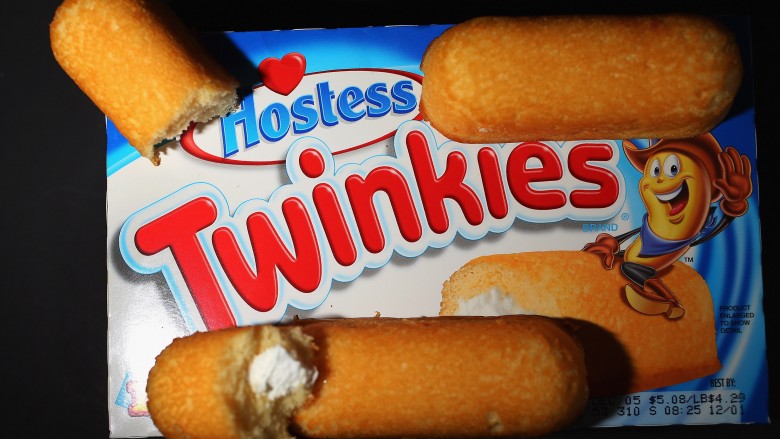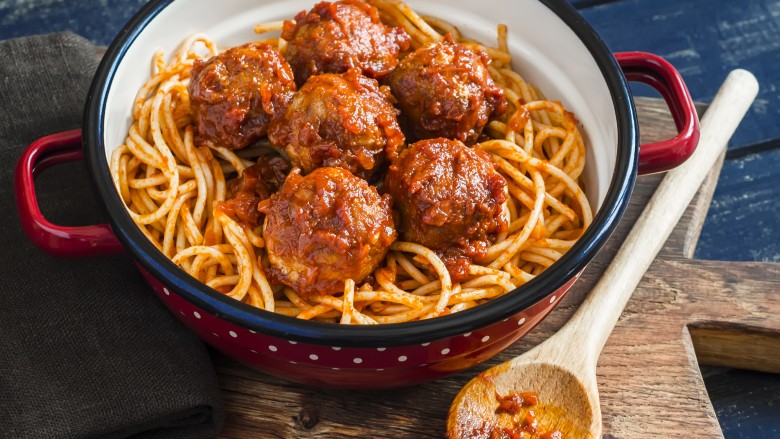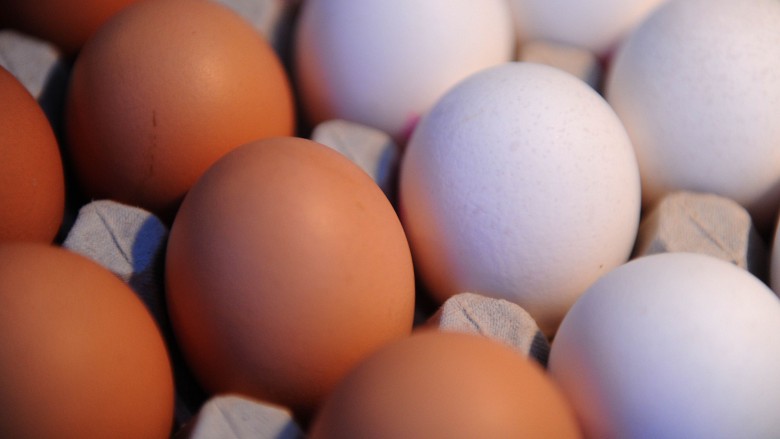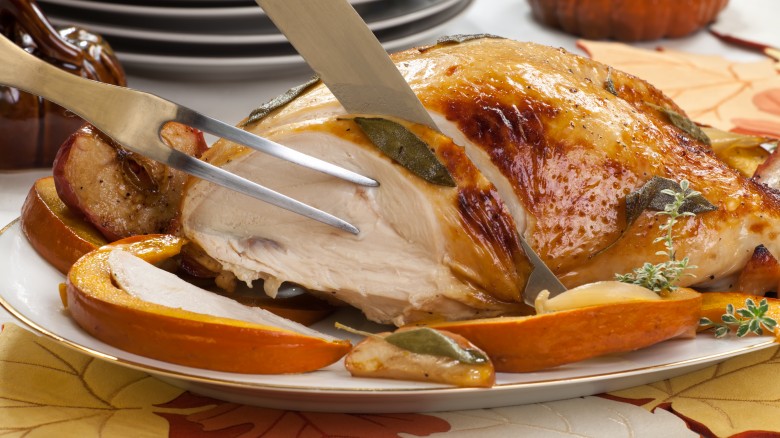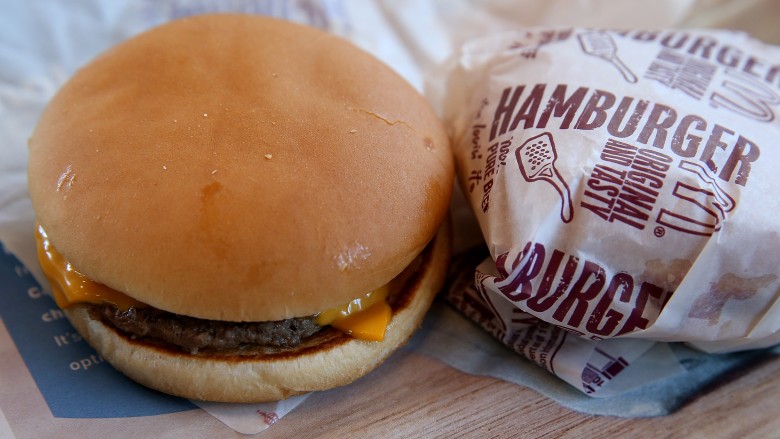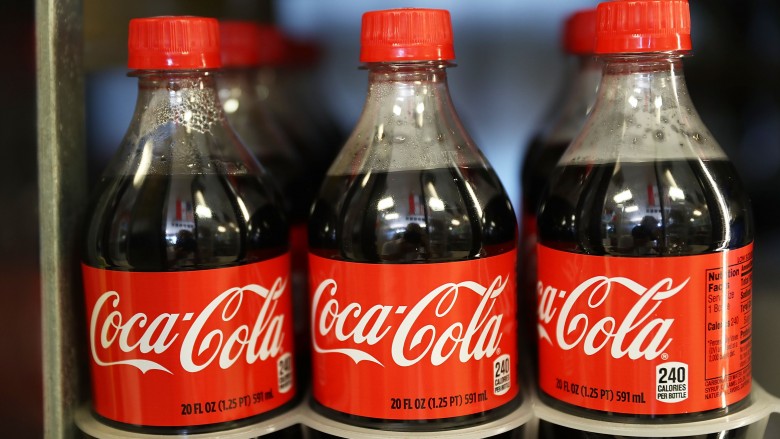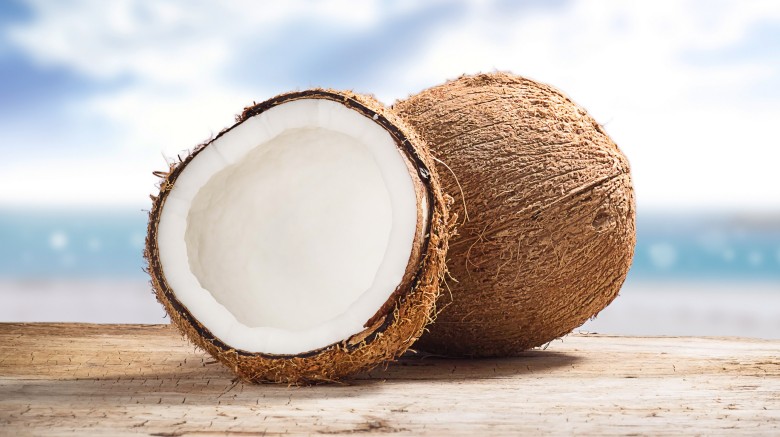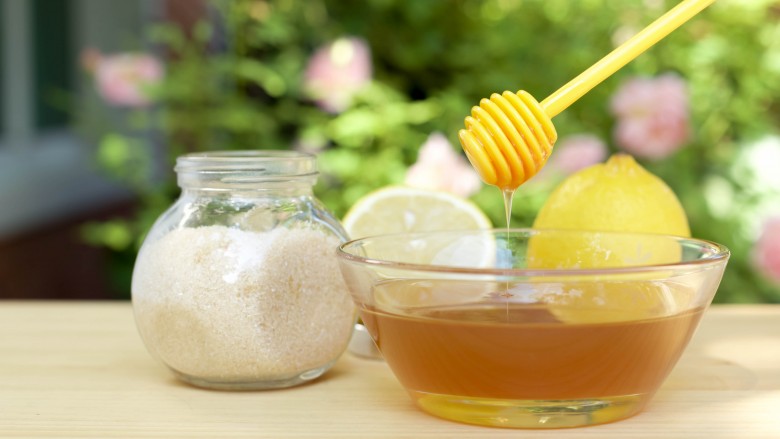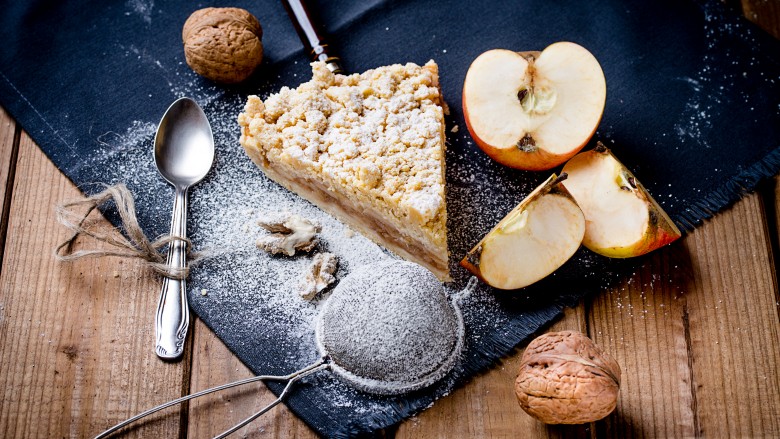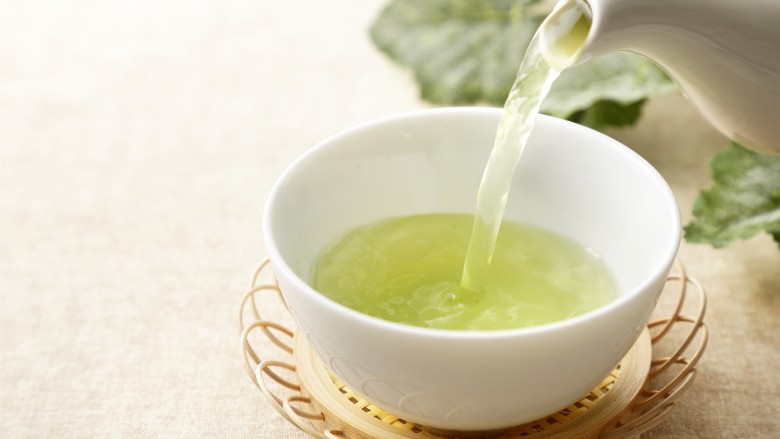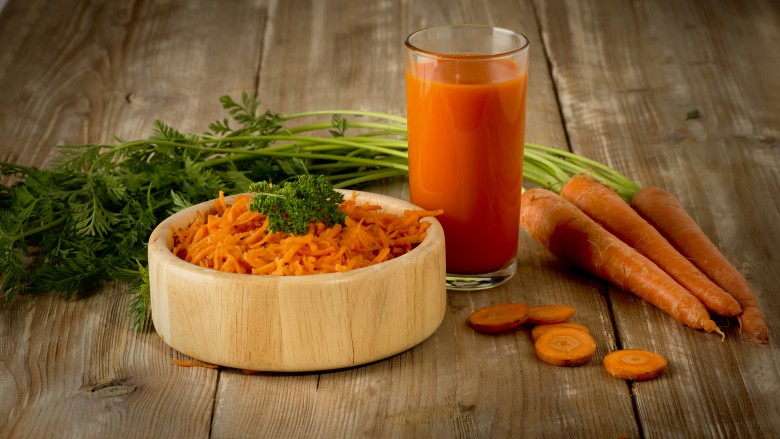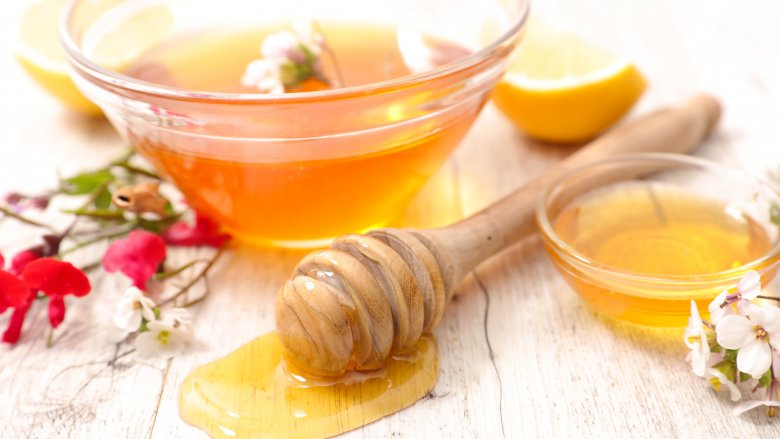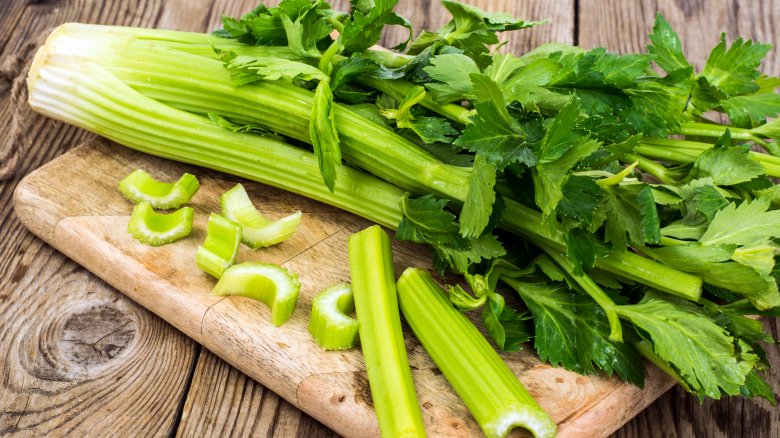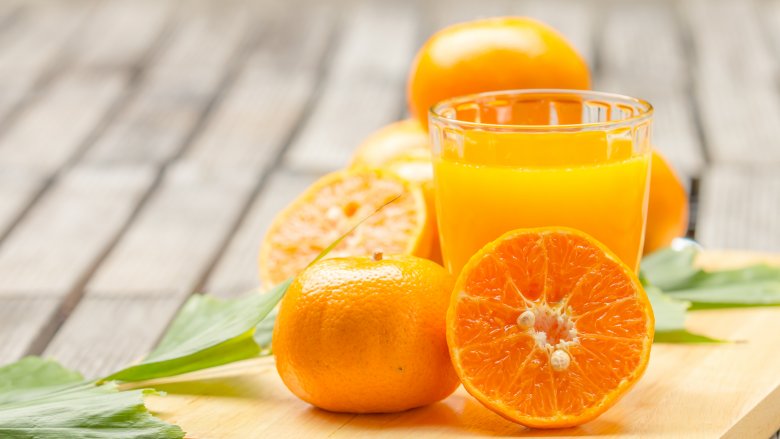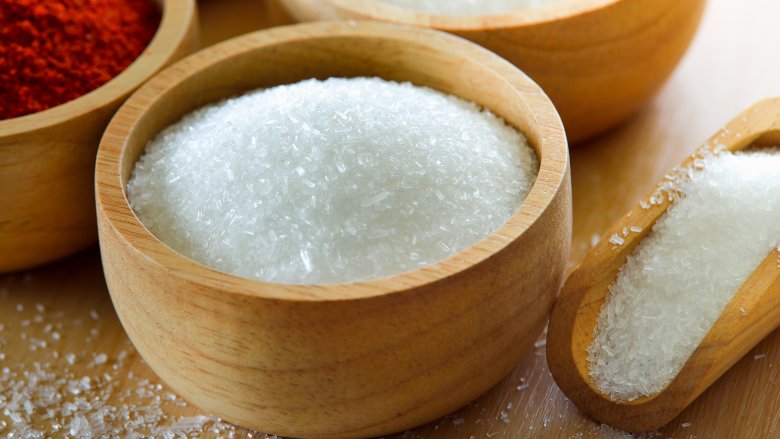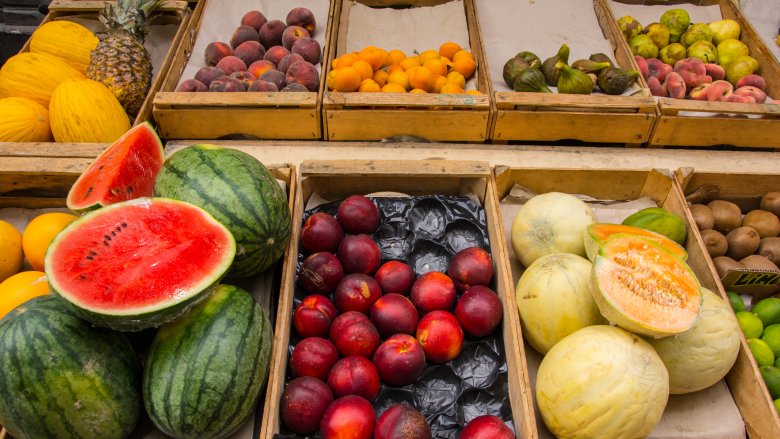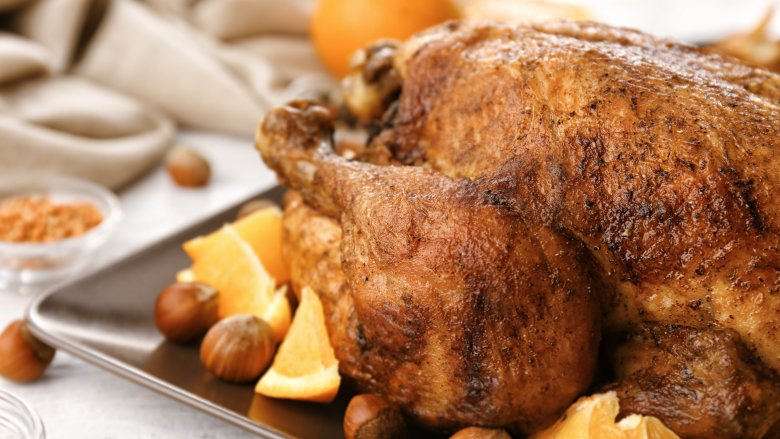Facts Everyone Gets Wrong About Popular Foods
With so many choices out there in restaurants and at the grocery store, it's vitally important that you keep on top of what you're feeding your family. Sometimes, though, "facts" are repeated so often that you just don't question whether or not they're true anymore, and sometimes they're not true at all. These are the facts everyone gets wrong about food.
Twinkies last almost forever
Twinkies have been around forever, and the common belief is that even the earliest Twinkies made would still be perfectly fine to eat today. That's because they last forever... don't they?
The truth is a little more typical. For a long time, a Twinkie's official shelf life was 25 days. There's a weird combination of factors that all come together to perpetuate this one, and it starts with Twinkie's ingredients. There are some chemicals in there, but it just lasts longer because it's got a base of shortening and sugar instead of cream. And instead of using milk for the cake, they use things like emulsifiers and monoglycerides — the building blocks of milk — to keep it from spoiling quickly. It's such an effective method that there's only one actual preservative added to a Twinkie, and that's sorbic acid.
In 2013, Twinkies returned to the shelves after a brief hiatus. After Twinkie's parent company, Hostess, declared bankruptcy, they were purchased by a private firm that poured some considerable resources into extending the shelf life even further. According to CEO C. Dean Metropoulos, tweaking an ingredients list only slightly and applying some serious science to things like moisture levels and baking time allowed them to create a new and improved product with a 45-day shelf life. That's significant, but still not even close to forever.
Spaghetti and meatballs is an Italian dish
Head to any Italian restaurant in America, and you'll find a ton of spaghetti and pasta options. But even today, anyone who actually visits Italy won't be finding spaghetti and meatballs on any menu.
At least, not in a form you're used to. The closest thing Italy has to meatballs are polpettes, and they're usually in soups or an entire meal on their own... and they're sometimes even made of fish. It turns out that we think spaghetti and meatballs are Italian for the same reason we think corned beef is Irish: because of immigrants. Between 1880 and 1920, about 4 million immigrants made their way to America from Italy, and they brought their tastes and traditions with them. There was no way to bring ingredients, though, and they found that beef was the most widely available.
It was in the U.S. that marinara sauce became popular, too, mostly because of the availability of ingredients like canned tomatoes, though it did originally come from Naples. No one's entirely sure how meatballs, noodles, and sauce all came together, but one theory is that Italian-American restaurants wanted to cater to the tastes of other diners and include a starch with every meal.
Brown eggs are better for you than white ones
If you find yourself reaching for brown eggs instead of white ones because you believe they're healthier, you're certainly not alone. There must be some difference after all, for them to cost more. But it's not as straightforward as that, and color actually has nothing to do with the nutritional value of any egg.
Brown eggs and white eggs are basically the same, and the color is different because of the color of the chicken that's laid them. It was a chicken with white feathers and white earlobes that laid your white eggs, and it was a chicken with red feathers and brown (or red) earlobes that laid your brown eggs. That's it! The added cost from brown eggs comes because those red-feathered chickens eat more and cost more to maintain, not because of the egg quality.
Turkey makes you tired
Every Thanksgiving, the poor turkey gets blamed when everyone comes down with a case of the sleepies. More specifically, it's turkey's tryptophan content that bears the brunt of the blame, but the science says something different.
Tryptophan is a component of the chemical in your brain that makes you tired. It's a part of serotonin, which gets converted into melatonin about the time you want to drift off to dreamland. Turkey does contain tryptophan, but a lot of foods do — and some, like cheddar cheese and chicken, even contain higher amounts of it than this actually blameless bird. Tryptophan can only work when it passes through the blood-brain barrier, and it has to compete with a whole bunch of other things to get through. Fortunately for tryptophan — and unfortunately for any plans you might have post-dinner — carbohydrates make it easier for this sleep-inducing chemical to get through that barrier and into the brain. All the bread, stuffing, rolls, potatoes, and yams you ate with your turkey release a ton of carbohydrates, which in turn increases your body's production of insulin, helping that trytophan slip through the cracks and into your system.
And that makes a carb-heavy meal the culprit, not turkey. Enjoy a massive helping of turkey without the carbs, and you'll find that it's not an exhausting meal after all.
McDonald's hamburgers don't rot
We've all heard the rumor that hamburgers from McDonald's don't rot. It's true, but it's not because of all the chemicals, preservatives, and other unnamed but terrifying ingredients. The Food Lab at Serious Eats took at look at the science of what's going on here, and they set up an experiment to figure out what actually causes the well-documented phenomenon. Turns out it wasn't chemicals that were the culprit, but water.
Since McDonald's hamburgers are thin and they're cooked fast on high heat, that means they're pretty dry when you get them — and they've been cooked in a food-safe environment to ensure they're bacteria-free. That means they'll lose what moisture they have left pretty quickly, and that means they won't rot. The dedicated researchers at the food lab compared the results to homemade burgers shaped and cooked in the same way, and found they won't rot, either. Burgers from McD's made from larger patties will mold, and that confirms there's nothing questionable going on here... just good, old-fashioned science.
Coca-Cola will dissolve anything from coins to teeth
There's another terrifying claim that makes the rounds on social media every so often, and it's the idea that if you leave something — usually a piece of meat or even a tooth — in Coca-Cola for long enough, the sugars and acids will dissolve whatever's in it. What does science have to say about that?
This one's a little tricky, so let's take a look at where it started. A Cornell University scientist named Clive McCay started the war on Coca-Cola with his claims that the highly acidic drink would ruin your teeth, and he did it because he thought most people would be more capable of understanding this idea than the more complicated effects of sugar and insulin in the development of diabetes.
Part of his evidence was the completely accurate fact that Coke will dissolve rust off a nail, and this was a bit of scientific bait-and-switch. Coke absolutely is used for things like removing rust, but what makes it so great at doing that is that it's actually the weakest — and therefore the gentlest on surfaces — of the liquids capable of doing it. Things like lemon juice and vinegar can do the same thing, but they're more acidic and more likely to actually corrode metal than Coke. If you're still worried about the impact Coke and other sodas have on your teeth, Real Clear Science looked at just what the myth means for your mouth. They found that while there is a link between acidic drinks and tooth decay, the worst offenders were things like orange juice and carbonated beverages with a fruit base.
Every year, coconuts kill more people than sharks
This one sounds like something straight out of a cartoon from our youth, but it has somehow garnered quite a following, so let's address it: falling coconuts kill more people every year than sharks.
It's repeated over and over again, and one of the biggest sources that's usually quoted is not exactly impartial: The Shark Research Institute. According to them, the 150-odd deaths attributed to falling coconuts means that you're 15 times more likely to meet your maker sitting under a coconut tree than sitting with sharks, but there's a distinct lack of evidence that any of it is true.
The Straight Dope took a crack at debunking the idea, and they found that while the oft-cited article in the Journal of Trauma does, in fact, reference death by coconuts, it talks about only two unfortunate individuals who were instantly killed by a falling coconut (and a few others who were injured). That's not the same as 150, and The Straight Dope actually got in touch with the author of the paper. He told them, "I am surprised that someone has come up with an actual number for such injuries. It must be a crude estimate [...]." And so, there you have it.
A spoonful of honey is healthier than a spoonful of sugar
If you're trying to cut back on sugar, you might think that going to a less processed, all-natural option ike honey is going to help you. But honey isn't necessarily healthier for you than plain white sugar, and here's why.
Honey — along with other popular replacements like agave and maple syrup — is what's called a free sugar. It's made up of the same basic components as table sugar, which is fructose and glucose that's bonded. As far as your body is concerned, it's the same thing.
Some of the health claims made about honey are a bit iffy, and that includes whether or not it's going to help you watch your waistline. Even though it's been found to have less of an impact on how fast blood sugar levels spike, a teaspoon of honey has more calories than a teaspoon of sugar, and when it comes to those who are trying to manage diabetes, there's little difference between the two. Honey can have more antioxidants and nutrients than sugar, but watch what you're buying — that's only true for the raw stuff.
Apple pie is definitely American
It's said that there's nothing more American than apple pie, but that's a bit of a misconception... as apple pie isn't American at all.
The concept of pies goes back ages, and they were eating savory pies in the ancient world. It was the English that not only embraced the idea of the sweet pie but wrote the very first recipe for an apple pie, all the way back in 1381. It called for apples, spices, and figs, and people loved it so much that apples — and apple pies — were often paid tribute in the form of songs and poems. A few centuries later, the Dutch added the idea of the lattice crust, and the Americas were still a few hundred years away from even having apples. That didn't happen until the trees were first introduced in the 1600s, and apples didn't start to appear on a large scale until European honeybees were brought over as pollinators decades later.
The first reference to an American apple pie wasn't until 1697, and a century later (thanks in large part to the Pennsylvania Dutch community) it was popularized as one of America's favorite desserts.
Green tea can help you lose weight and boost metabolism
Everyone wants a quick fix for the things that they might not like about their body, and green tea often gets a reputation for being that quick fix. You've probably heard all sorts of things about it, from the idea that it's a targeted fat-burner to claims that drinking it regularly will help boost your metabolism. It sounds great, but it's largely untrue.
Drinking green tea won't make your body burn fat faster, and while switching from sugar-filled soft drinks to green tea will help you lose weight, it's not for the reason you might think. It's not the green tea that's helping, it's cutting out all the extra sugar that's in so many other drinks. The same goes for the so-called detox teas, and as much as you might want there to be some sort of miracle weight-loss tea, there just isn't.
Carrots improve your eyesight and help you see in the dark
You've probably used this one to get picky eaters to finish off a pile of carrots from their dinner plate, and you might also be surprised to find that not only is this one partially true, but there's an epic story behind it. Turns out, carrots are actually good for your eyes — to a point. Studies have confirmed that people with diets high in zeaxanthin and lutein — two compounds found in carrots — and beta-carotene had less chance of suffering from a degeneration of their retinas as they age.
What they won't do is improve your eyesight, reverse damage that's been done, or help you see in the dark. Popular belief made the jump to this conclusion not unaided, and it's believed to have developed during World War II thanks to Britain's Ministry of Information. In 1940, RAF aces were building up incredible kill scores overnight, and they needed a way to explain just how they were doing it. The Ministry spread the word that it was because pilots were given lots of carrots in their diets, and it was improving their eyesight and night vision. The lie was for a very good reason: they didn't want anyone to find out they were using a new technology called radar.
There were a few major consequences for the story. Since rationing was front and center in British life — but there were still a ton of carrots — it was seen as a great way to make people (especially children) feel better about eating carrots instead of things like sweets. Posters reminded people that their carrot-rich diet was going to help them see during blackouts, and we still repeat the idea today.
Honey can help you fight allergies
It's an awesome idea, but contrary to oft-repeated belief, using honey to administer a low dose of pollen to your system isn't going to help you build up a tolerance and get over your allergies.
Slate took a crack at debunking this one, and there are a few reasons we know it just doesn't work. Honey is made from nectar, not pollen, and when pollen does make its way into the final product it's in amounts so tiny it won't make a difference. The National Honey Board says honey is only between .15 and .43 percent pollen, the stuff that accidentally hitches a ride on the bees. If you're still doubting, you should also know honey pollen isn't the pollen that causes most allergies. The majority of our allergies are the fault of the smaller pollen grains found in weeds, trees, and grasses, not the larger pollen found in honey-making flowers. According to American Academy of Allergy, Asthma, and Immunology allergist Andrew Murphy, honey's magical powers are a fluke of timing. By the time you think it should be working, allergy season is over.
Celery is a negative-calorie food
No one will fault you for wanting to believe this one, and while University of Alabama, Birmingham's chair of the department of nutrition Tim Garvey says it's theoretically possible to have a negative-calorie food, he also says, "In actuality, there are no negative-calorie foods."
The BBC looked at celery in particular, as that's most frequently touted as having fewer calories than your body uses to process it. Garvey says a large stick of celery has about 10 calories, but your body only burns 2 calories digesting it. Add in the fact raw celery is often dressed up with other things, and you're absolutely not in the negatives.
There's potentially another problem with this theory, too, according to research done by the Department of Human Nutrition of Denmark's Royal Veterinary and Agricultural University. They found the calories naturally burned by digestion and bodily processes were less after eating a high-fiber meal, so that stalk of celery (with cellulose) might have two strikes against it.
Orange juice will help fight your cold
No one wants the sniffles, and we like to think increasing our vitamin C intake will help us take an active role in dodging a cold. But according to research compiled by Greatist, there's no straight answer on just what vitamin C is going to do for you. It may help, it might not, and it might just decrease the severity of your symptoms. There might be a catch, too, as there's some evidence too much vitamin C might increase the risk of kidney stones and cause some serious havoc in your digestive system. Generally, though, it's not going to hurt you... but orange juice just might.
You're not just getting oranges and vitamin C when you're drinking a glass of orange juice, and according to Spoon University, most orange juices have as much sugar as a comparable class of Coca-Cola. That's just not bad, it's extra-bad when you're trying to fight off a cold. High blood sugar interferes with your ability to absorb vitamin C, because the same receptors that process vitamin C also handle glucose. The two have to duke it out, and you're not doing yourself any favors no matter how you look at it.
MSG is dangerous
According to some, MSG causes all sorts of nasty reactions, everything from headaches to chest pains. The condemnation of MSG is so massive it's caused some companies to proudly declare themselves MSG-free. We took a look at the history of MSG (you can read the whole piece here), and found not only are some foods naturally full of the stuff, but there's not much in the way of proof the so-called "Chinese restaurant syndrome" actually exists.
The possibility first made an appearance in the public consciousness in 1968, with a single letter published in the New England Journal of Medicine. There was no proof reported symptoms were tied to anything in particular, but the idea went viral. According to the BBC, there were a few studies done with mice and monkeys that seemed to show there was something up with MSG, but they couldn't be replicated. Once studies were done on humans... they found nothing. Massive doses of MSG were found to cause a reaction, but no one's really sitting down and eating a plate of straight MSG. The FDA has since declared it GRAS, or "Generally Recognized as Safe," but the damage has been done.
Organic food is pesticide- and chemical-free
Fans of organic foods usually say they're better for you and better for the environment, and that justifies the higher price tag. One of the big selling points of organic food is it's supposed to be pesticide-free, but that's not the whole truth.
There's a lot people get wrong about organic food, but this is sort of the elephant in the room, as it's why a lot of people go organic in the first place. The USDA has a list of substances farmers can use and still have their produce certified organic, including synthetic substances like algicides, disinfectants, and sanitizers (that are often used for irrigation systems), washes containing chlorine, soaps, and ammonia (usually as animal repellent), and insecticides, even including things like copper sulfate, boric acid, and sulfur derivatives. There's a whole list of exemptions for livestock production, too, and you can view the whole list here.
White meat is healthier than dark meat
White meat or dark? It's just one of many questions that might start an argument at Thanksgiving dinner, so let's talk about what the right answer really should be.
Whatever you want! The belief one type of meat is a lot better for you than the other is a myth, and according to Chicken Farmers of Canada, they both have their benefits. White meat is lower in fat, but dark meat has more iron, zinc, and vitamins like K, B6, and A. Both have their benefits, so there's no reason you should feel guilty picking whichever you prefer.
And if you're still getting harassed for picking the fattier dark meat, point out the results of a study done by the New York University School of Medicine (via LiveScience). They not only confirmed dark meat has more nutrients, but also found it contains taurine that can help lower cholesterol and risk of heart disease, as well as contribute to nerve function and our body's production of bile acid, which is required for the breakdown of fats. So, dig into those drumsticks guilt-free.

